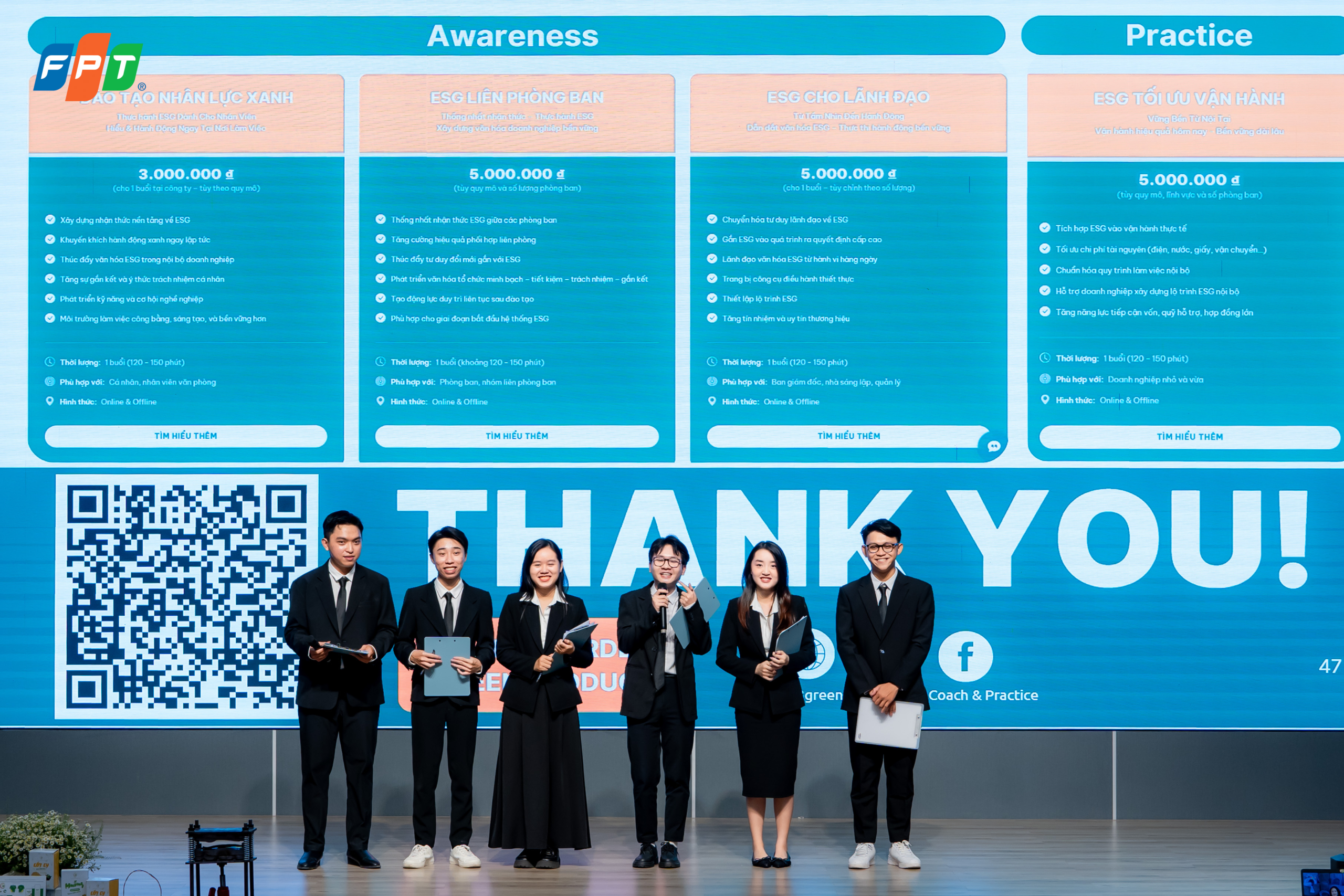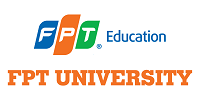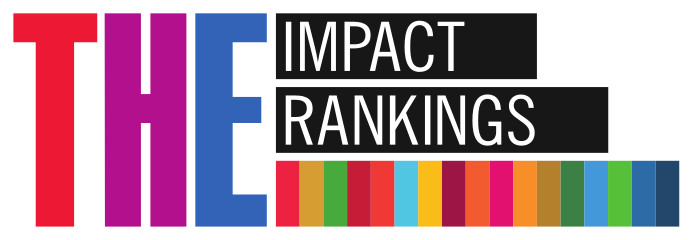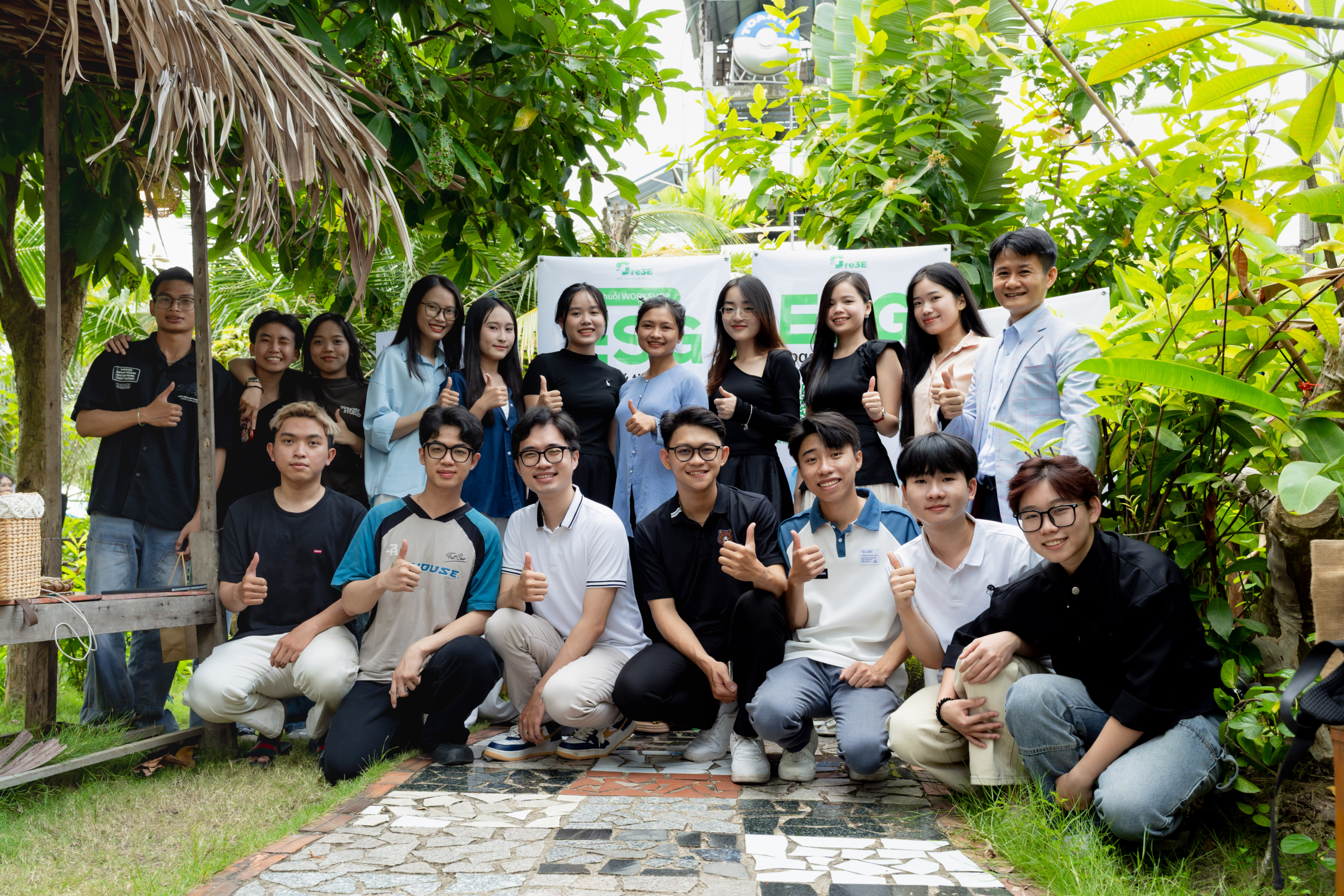A group of students from FPT University has launched a project applying ESG to help small and medium-sized enterprises (SMEs) in the Mekong Delta approach sustainable development trends.
Students bring ESG closer to businesses
ESG, short for Environmental – Social – Governance, is a set of sustainability criteria that has been increasingly recognized as a key standard for business operations. However, for SMEs in the Mekong Delta, adopting ESG remains a challenge due to limited resources and the lack of specific guidance.
Recognizing this, a team of Business Administration students from Cohort 17 at FPT University initiated the “ESG Coach & Practice” project. The initiative focuses on researching and applying ESG in business management while integrating the 3Green standards—Green Marketing, Green Product, and Green Production—to provide feasible solutions tailored to local industries.
 Six team members at their thesis defense at FPT University
Six team members at their thesis defense at FPT University
Benefits from practical ESG application models
After more than a year of implementation, the ESG Coach & Practice project has been highly appreciated by both businesses and experts for its applicability and effectiveness. With VND 50 million in seed funding from FPT University, the student team developed a comprehensive solution system: collaborating with more than 13 mentors and 10 businesses interested in ESG, and directly working with three units in the Mekong Delta, namely Mekong Silt Ecolodge Resort, Abavina, and Sokfarm.
In parallel, the team released an ESG handbook with three consecutive editions that attracted nearly 800 visits; developed the website 3Green.vn integrated with an AI chatbot and an e-commerce channel for green products; and piloted the “AI emotion-sensing” sales tool linked to ESG values. As a result, the project not only achieved a 33% customer return rate and retained all of its initial customers, but also built an online community with over 15,700 engagements, dozens of media contents, and product distribution collaborations with many local brands. The team also completed four ESG training packages specifically designed for SMEs and won First Prize in The Best Sell category at the F-Proselling competition.
From the business perspective, Mr. Pham Dinh Ngai – CEO of Sokfarm – affirmed that ESG is an opportunity rather than a burden. “By applying ESG, businesses not only improve internal processes but also gain easier access to markets with green standards. In fact, Sokfarm has successfully attracted a green financial investor and exported products to Germany and the Netherlands. This proves that ESG is not a barrier, but a competitive edge that enables Vietnamese enterprises to confidently enter the most demanding markets,” he shared.
 Mr. Ngai (in a blue shirt) shared that the business has seen positive changes after applying ESG to its operations.
Mr. Ngai (in a blue shirt) shared that the business has seen positive changes after applying ESG to its operations.
Not only creating value for businesses, the project also provided a rich learning environment for students. By directly conducting surveys and working with managers and staff, the team honed their analytical, communication, and teamwork skills. More importantly, this serves as proof of FPT University’s educational approach: encouraging students to connect research with practice and propose applicable solutions rather than stopping at theory.
In the long run, such projects can also help raise awareness of ESG within the local business community. When small enterprises begin by applying simple steps, they gradually build a solid foundation to expand into higher standards, thereby enhancing competitiveness and better meeting the requirements of both domestic and international partners.
M.L
 Six team members at their thesis defense at FPT University
Six team members at their thesis defense at FPT University



 The workshop “ESG & 3Green – Co-creating indigenous microorganisms, revitalizing soil with Abavina” was successfully held at Abavina – Thuan Thien Agricultural Community (Can Tho)
The workshop “ESG & 3Green – Co-creating indigenous microorganisms, revitalizing soil with Abavina” was successfully held at Abavina – Thuan Thien Agricultural Community (Can Tho) Mr. Ngai (in a blue shirt) shared that the business has seen positive changes after applying ESG to its operations.
Mr. Ngai (in a blue shirt) shared that the business has seen positive changes after applying ESG to its operations.